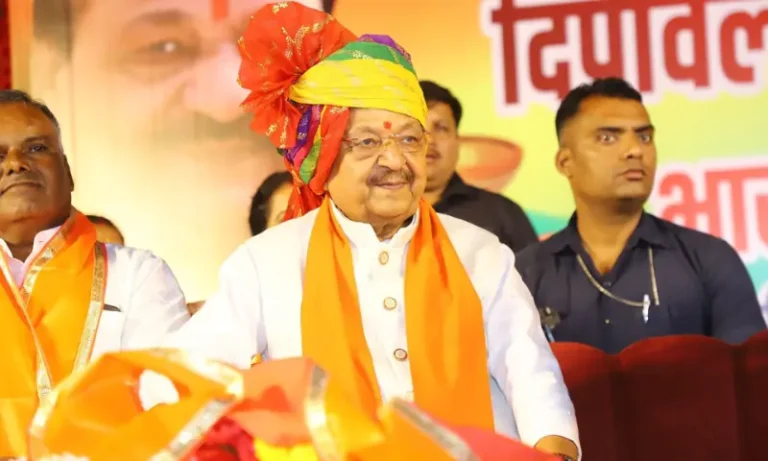A senior BJP leader and Madhya Pradesh minister, Kailash Vijayvargiya, has come under criticism after suggesting that two Australian women cricketers who were harassed in Indore “will learn a lesson” from the incident and be more cautious in the future. His remarks have drawn widespread attention, as the issue raises questions about player safety and victim-blaming in India.
Also Read: PCB Nears New 10-Year PSL Franchise Deal
The incident occurred last Thursday morning when two Australian players, whose names have not been disclosed, were allegedly harassed by a man while heading to a café from their hotel in Indore. The players were part of the Australian team participating in the Women’s World Cup and had recently defeated England in a group stage match.
Police confirmed that the accused, a 30-year-old man with a criminal history, has been arrested and charged under sections related to assault and stalking. Authorities stated that the man approached the players on a motorcycle and behaved inappropriately before fleeing the scene. Following the complaint by the team’s security officers, police launched an immediate investigation and arrested the suspect after a detailed search operation.
Vijayvargiya, while addressing the media, said the incident should serve as a reminder for all players to be careful about their movements. He remarked that “sometimes players don’t realize their popularity” and should “inform local authorities before stepping out.” His comments, which appeared to shift partial responsibility to the players, were seen by many as dismissive of the seriousness of the harassment faced by the cricketers.
The minister added that while there was a lapse in security, players should have informed local officials before leaving their hotel. He said the incident was “a lesson for everyone,” including both players and organizers. Critics, however, argued that public figures should focus on accountability and systemic safety rather than advising victims to be more cautious.
Additional Deputy Commissioner of Police Rajesh Dandotiya confirmed that the case is being treated seriously. He said the accused was charged under laws related to outraging the modesty of women and stalking. Dandotiya also mentioned that authorities are reviewing the team’s security arrangements to identify any gaps that may have allowed the incident to occur.
Cricket Australia expressed concern and said the matter was promptly reported to the local police by the team’s security staff. A spokesperson confirmed that the players were safely escorted back to their hotel after police intervention. The Australian board thanked local authorities for their swift response and assured that players’ well-being remains their top priority.
Board of Control for Cricket in India (BCCI) Secretary Devajit Saikia called the incident “deeply regrettable and isolated.” He praised the Madhya Pradesh Police for their quick action in arresting the suspect and said that steps are being taken to review and reinforce security protocols for visiting teams. He also assured that both the BCCI and state authorities will ensure justice is served through proper legal channels.
Reports from The Times of India revealed that the team’s security manager received a distress message from one of the players stating that “a man is following us trying to grab us.” The manager quickly alerted local police, who responded immediately and dispatched officers to escort the players to safety.
The case has once again highlighted the persistent problem of harassment and violence against women in India. According to government data, nearly 90 cases of rape are reported daily in the country, pointing to deep-rooted issues that continue to challenge law enforcement and social awareness efforts.
As the investigation continues, the remarks made by the minister have sparked debate about the responsibility of public officials when addressing incidents involving female victims. For many, the focus should remain on ensuring safety, justice, and respect for all players—rather than assigning blame to those who experience such traumatic incidents.


